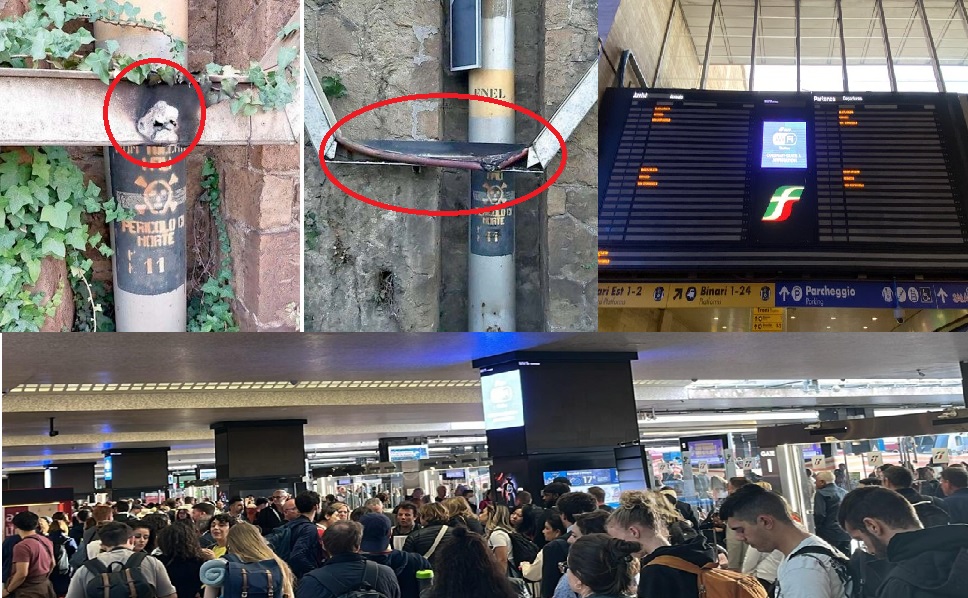“We will respond to Iran’s missile attack soon.” This is what the Israeli army declared, the day after the launch of around two hundred missiles from Tehran. All this while IDF raids continue in Beirut, Lebanon, where the son-in-law of former Hezbollah leader Hassan Nasrallah was killed (according to a local NGO). Israel's security cabinet said it agreed that Israel's response to Iran would come after coordination with the United States. Channel 12 reports that the decision, made last night, calls on Israel to respond with force to the missile attack, but will first work to coordinate with Washington. This is because they want to try to strike Iranian strategic sites.
Italy at the UN
“Italy calls for an immediate ceasefire in Lebanon. We will continue to work towards a diplomatic solution and will be ready to actively assist the Lebanese Armed Forces in fulfilling their responsibilities along the border with Israel. On this point, Italy considers it of the utmost importance to fully support and relaunch negotiations between the two parties to peacefully establish their borders. These are the words of the permanent representative to the UN, Ambassador Maurizio Massari, to the Security Council. Italy is the only country not from the Middle East area authorized to speak on the basis of article 37 of the rules of procedure of the Security Council itself. . And further: “Italy invites the UN Security Council to consider making the implementation of the mandate of the UNIFIL mission more effective, in order to guarantee security along the Blue Line and to guarantee that the displaced populations of northern Israel and Lebanon can return home in complete safety. . The safety of all Unifil personnel must be respected and fully guaranteed. The sovereignty and territorial integrity of Lebanon must also be respected. »
Netanyahu: “We are at war against the Iranian axis of evil”
“We are in the middle of a bitter war against the axis of evil Iran, which seeks to destroy us. This will not happen, because we will be united and, with God's help, we will win together. » These are the words of Israeli Prime Minister Benjamin Netanyahu in a video statement. “We will save our hostages in the south, we will bring back our residents to the north, we will guarantee the eternity of Israel,” he added. In the communication, he offered his condolences to the families of the eight soldiers killed today in Lebanon. Hamas claimed responsibility for last night's attack in Jaffa, a neighborhood south of Tel Aviv. According to Hamas, the two terrorists who carried out the attack, Mohammad Mesek and Ahmed Himouni, originally from Hebron, are their militiamen. Six of the seven victims have been identified: Revital Bronstein, 24, Ilia Nozadze, 42, Shahar Goldman, 30, Inbar Segev Vigder, 33, Nadia Sokolenco, 40, and Jonas Chrosis, 26. In total, 7 people died and 16 were injured.
The situation
After the October 1 attack with 180 ballistic and hypersonic missiles against Israel, the Tel Aviv army confirms that some military bases were hit by rockets. Tehran called it an “action of self-defense” in accordance with “Article 51 of the United Nations Charter.” With which “only the military sites responsible for the genocide in Gaza and Lebanon” were targeted. Tehran's Foreign Minister, Abbas Araghchi, justified the October 1 attack in a post on X. Meanwhile, Israel is preparing its response. Which will focus on the nuclear centers of the Islamic Republic. Yesterday morning, the Air Force bombed Syrian missile defenses. A way to facilitate the journey to Tehran. Which also remains in the crosshairs from a political point of view. With the aim of accelerating any regime change within it. Meanwhile, Israel expanded its operations into southern Lebanon. The evacuation order was issued in dozens of villages on the border between the two countries, while the IDF carried out some infiltrations and engaged in clashes with Hezbollah. “The 98th Division is engaged in close combat with Hezbollah militiamen and has directed airstrikes against gunmen and positions of the terrorist group,” notes the Israeli army.
The Iranian attack
Araghchi said the Iranian attack came “after showing extreme restraint for almost two months.” To make way for a ceasefire in Gaza. » And he declared that from now on “our action is over, unless the Israeli regime decides on further reprisals”. In this scenario, our response will be stronger and more powerful. » The attack was different from that in April, when the Iranians announced their actions in advance. Allow Israel a coordinated response with the United States and some Arab countries. Not this time. And the operation was preceded by a cyberattack against Tel Aviv's missile defense systems. Underground tunnels were used for launches. The goal was to hit with one shot. Avenge the assassinations of Haniyeh, Nasrallah and Commander Abbas Nilforoushan.
Israel's response
Israel's response lies entirely in Benjamin Netanyahu's video addressed to the Iranian people in which the Israeli Prime Minister offers his support for the “liberation struggle” against the Ayatollahs' regime. Iranian leaders also struck Tel Aviv because they had been receiving signals to this effect for some time. The next target after Gaza and Lebanon could be Tehran. So striking early could be a way to stop them, was the reasoning. The answer came after a long phase of hesitation. For fear of all-out war with Israel. But at a certain point, Tehran could no longer stop. Even if now the possibility of Israeli reprisals on Iranian territory is becoming more and more a certainty. With all the associated risks for a regime which will now also have to deal with the United States. However, at the same time, discontent with the United Nations is growing. Tel Aviv had expressed surprise at Antonio Guterres' lukewarm reaction, and this morning the UN Secretary General was declared “persona non grata”, as Foreign Minister Katz announced.
The objectives of reprisals
“Iran made a serious mistake and will pay the price,” the Israeli prime minister said. “We will stick to what we have established: whoever attacks us, we attack,” he concluded. While the United States, which helped its ally to shoot down Iranian missiles, declared that it wanted to “coordinate” with the Israelis a response to their sworn enemy. Even if yesterday's attack left a total of one dead and two injured. A Palestinian was killed in Jericho, in the occupied West Bank, by missile fragments, according to a Palestinian official. Two Israelis ended up in hospital according to emergency services. When asked whether “serious consequences” could include the bombing of Iran's nuclear infrastructure, starting with Natanz, US State Department spokesperson Matthew Miller said only that “we do.” We will talk with the Israelis.”
Raids on nuclear centers
The most likely response today appears to be raids on nuclear centers. Although according to the Corriere della Sera the generals and Netanyahu decided not to rush. “We will decide when to make the regime pay and we will demonstrate our ability to surprise,” said Chief of Staff Herzi Halevi. Even if there is a plan circulating at the top of government. What we have been thinking about since 2009. This is an attack against nuclear centers developed by the Islamic Republic. “The Air Force continues to operate at full capacity and tonight we will continue to strike with force in the Middle East as we have for the past year,” said Rear Adm. Daniel Hagari, a spokesman for the Air Force. the Israeli army, in a press release.
Bunker bombs
But the atomic sites have been thoroughly searched. To destroy them, anti-bunker bombs supplied by the Americans are needed. Without the support of the Pentagon, the raid would not have succeeded. Because it also involves traveling more than 1,500 kilometers in flight. But pilots have already trained to refuel in the sky. And the bombing of the Houthi-controlled port of Hedeida in Yenen, 1,800 km away, was seen as a dress rehearsal for reprisals. And the demonstration that the distance can be easily bridged.
What has happened so far
Israel declared war on Hamas after the Islamist movement's attack on October 7, 2023. Lebanese Hezbollah opened a front against Israel the next day in support of the allies. Last week, Hassan Nasrallah was killed in a raid claimed by Israel in the southern suburbs of Beirut. On July 31, Ismaïl Haniyeh, leader of Hamas, was killed in an attack while he was in Tehran. On April 13, in response to a deadly attack attributed to Israel on the Iranian consulate in Damascus, Iran launched approximately 350 drones and explosive missiles toward Israel. Most of the missiles were intercepted.
Cover photo: EPA/ATEF SAFADI

